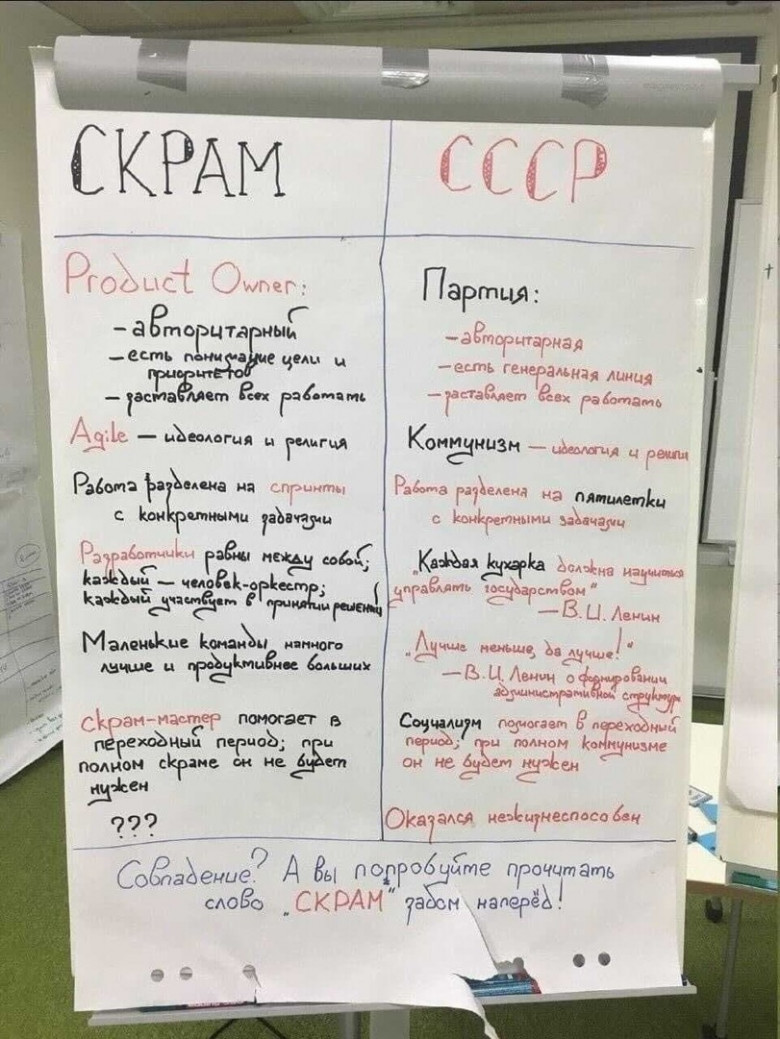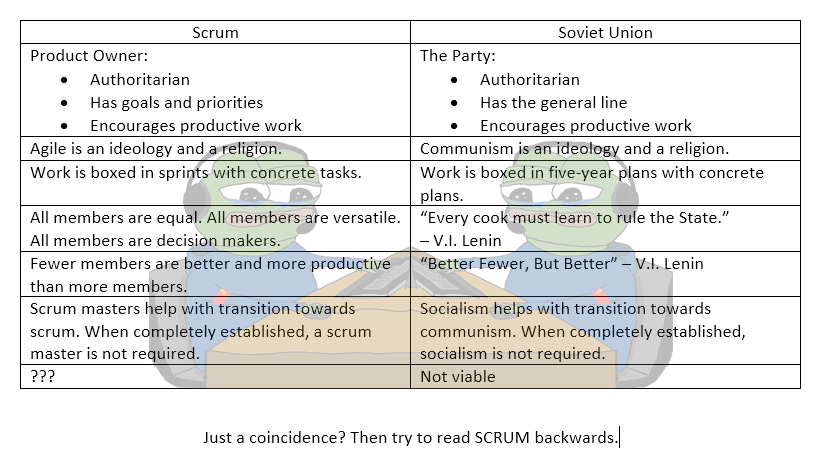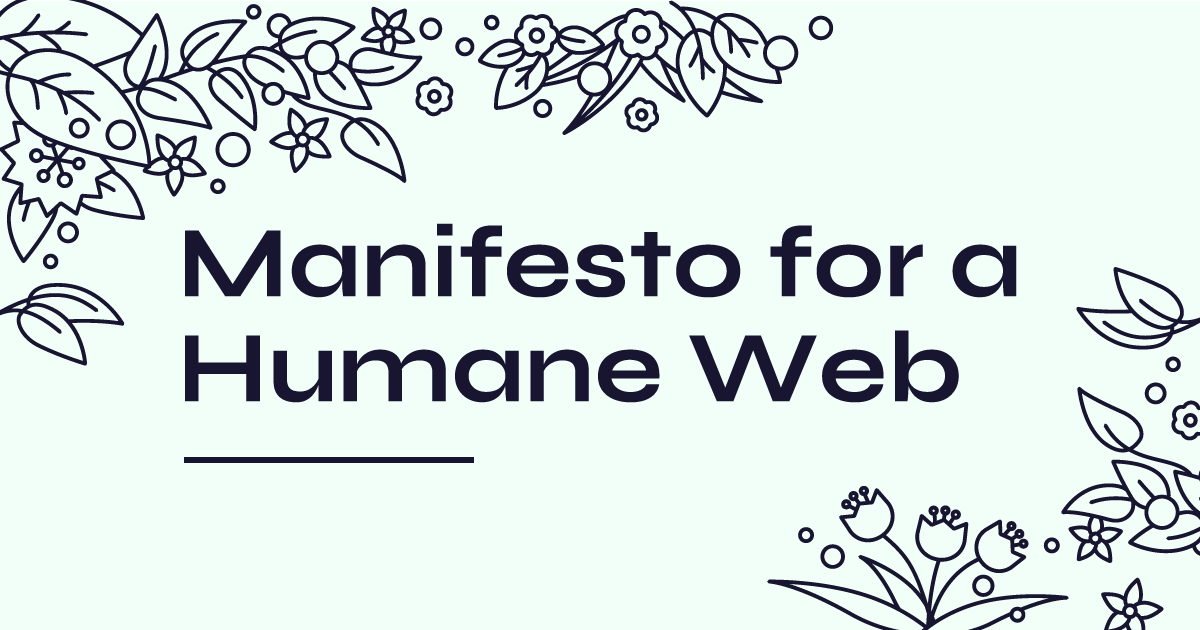- cross-posted to:
- a11y@lemmy.world
- cross-posted to:
- a11y@lemmy.world
My hairs on the back of my neck stand up when hearing the word Manifesto nowadays.
The Manifesto:

No… regarding Agile actually.

Did you try to read “СКРАМ”(SCRUM) backwards? It’s “МАРКС”(MARX).
Translated version:

OK, since you hate communism so much, why are you still using Lemmy? Try Mbin ;)
How do you make it safe and inviting while also protecting anonymity?
Some anonymous users are prone to pretty awful behavior, and non anonymous users will be profiled.
For interaction? Pseudonyms with a ramp up into being able to interact fully is the middle ground. Your activity on that specific site will be monitored to kick you out if you behave inappropriately, but it shouldn’t carry across sites unless you voluntarily use a third party identity provider (which is a good option to have).
Massive scale is a big part of the issue. It raises the barrier to entry for competing platforms (because being able to scale to rapid growth is a huge up front investment, and can easily cripple your platform if you don’t do so), and brings the moderation responsibilities beyond anything actually manageable. Small to mid sized communities being the norm is much more manageable, much easier to develop for, and much healthier generally.
Federated systems are one option for this. On one of my sites, the only way people can leave comments is with ActivityPub. They must have a (probably pseudonymous) account on a server to use that, and I hope that most servers have moderation I find acceptable. I can block those that do not.
More sophisticated options for sharing reputation between servers would help here. If, for example five servers I trust block another server as a source of harassment, I’d like to block it as well, automatically.
Is web of trust still a thing?
That was intended to be kind of a distributed way to determine who didn’t suck.
It is still a thing, but nobody wants to use it, because the flaws of other systems they want to use for themselves.






